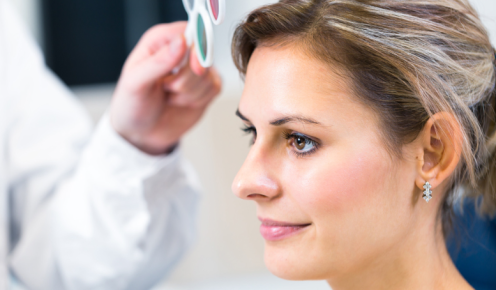Sanpaku Eyes Curse
We all rely on our eyes to see the world around us. Whether it’s for navigation or for simply watching TV, our eyes are essential for everyday life. But what if your eyes couldn’t detect disease? That’s a question doctors are asking as they grapple with the potential challenges of the burgeoning autoimmune disease epidemic. In this article, we explore how doctors are trying to answer this question and what it could mean for the future of medicine.
What is Eyesight
There are many different types of eyesight, but all of them work the same way. Your eyes are able to see things by using light to pass through your eye and into your brain. When something disturbs the light as it passes through your eye, you can’t see it. This is how your eyes work to detect disease.
Your eyesight is based on how well you can see in dim light and in distance. People with good vision can see details at a distance and in dim light better than people with poor vision. People with normal or near-normal vision can usually see fine print, read newspaper articles, and watch television programs without glasses or contacts. Some people have problems seeing some things clearly, such as when they’re reading small print or watching a movie that’s been adapted for the smaller screen.
People who have bad eyesight can’t see very well in dim light or in distance. They may need to wear glasses or contacts to see clearly at close range or when there’s bright sunlight shining in their eyes. These people also may have difficulty reading large print or watching television programs without having the picture turned up really high on the screen.
Read more: Sanpaku Eyes Curse

Types of Eyesight
Can eyes detect disease?
Research suggests that the human eye can distinguish between different types of diseased cells. This ability is thought to be related to the immune system, as the eyes are a common site of infection. In a study of mice, researchers found that the eyes could differentiate between healthy and diseased cells in lung tissue samples. The study authors believe that this ability may help the immune system fight infections by identifying and attacking Diseased Cells.
Other research has shown that people with good eyesight are more likely to develop cancer than those with poor eyesight. Researchers suggest that this may be due to an increased risk of exposure to harmful light, such as from sunlight or lamps, which can lead to inflammation and damage to cells. People who have poor eyesight may also be more likely to develop other conditions, such as cataracts or glaucoma, which can also damage cell tissues.
How Eyesight Works
Your eyesight is a critical part of your overall health. The three main purposes of eyesight are to allow you to see things, to keep your head upright, and to avoid being hit by objects.
The basic structure of the eye is made up of several different parts: the eye ball, the cornea, the iris, and the lens. The eye ball is at the front of your face and is protected by the eyelid. The cornea is a clear sheet that covers most of the front surface of the eye ball. The iris is a ring around the center of the cornea and contains many tiny blood vessels. The lens is a transparent structure in the middle of your iris that helps focus images onto your retina.
Eyesight works best when light travels through clear surfaces such as glass or plastic without any obstructions. When light hits an obstruction like a speck of dust in your lens, it becomes blurry. This problem can be especially bad when you are looking at close objects because all those little bits of obstruction create a “noisy” image on your retina.
To see clearly, your eyes must adjust their focus constantly so that everything in sight appears sharp. This process is called accommodation (or refocusing). Accommodation happens automatically but can sometimes be disrupted by things like eyestrain or headaches.
Read more: Sanpaku Eyes Curse
Diseases of the Eye
The eyes are the windows to the world. The eyesight is vital for everyday activities such as reading, driving, and working. There are many diseases of the eye that can affect your vision. Some of these diseases can be treated with medication, while others may require surgery or other treatments.
One common eye disease is cataracts. A cataract is a condition in which the lens of the eye becomes cloudy from age or damage. This can cause decreased vision and often needs to be treated with surgery. Other common eye diseases include macular degeneration, a disorder that destroys the central part of the retina responsible for sight; glaucoma, a condition that causes increased pressure in the eyes; and diabetic retinopathy, a condition caused by diabetes that can lead to blindness.
Testing Your Eyesight
If you have poor eyesight, you may want to consult an eye doctor. Testing your eyesight can help determine whether you need to make any changes to your lifestyle or see a specialist.
There are several ways to test your eyesight. You can take a standard eye chart or the Snellen chart, which measures how well you can see at different distances. Other tests measure how well you see in dim light and in low-contrast conditions.
If you’re concerned about your vision, talk to your doctor about what tests might be appropriate for you.
Read more: Sanpaku Eyes Curse
Treatment for Eye Disease
There is no one-size-fits-all answer to this question, as the best treatment for an individual’s eye disease will depend on the specific condition and its severity. However, some general tips for treating eye diseases include:
– See a doctor as soon as possible if you notice any changes in your vision. Eye infection can quickly become more serious if left untreated.
– If your eye is inflamed or red, use over the counter pain relief medications such as ibuprofen or acetaminophen. Do not use aspirin, which can damage your eyes.
– Wear protective eyeglasses and sunglasses whenever you are outside in bright sunlight or when using harsh chemicals or detergents.
– Eat a healthy diet that includes plenty of fruits and vegetables to help maintain a healthy immune system.
– Avoid smoking, drinking alcohol, and using illegal drugs – all of which can affect your vision.
Conclusion
Eye exams are an important part of your health care, and detecting diseases early is key to preventing them from becoming serious. According to the American Optometric Association, eye exams can detect more than 40 different diseases, including cancer, glaucoma and cataracts. By scheduling regular eye exams and getting screened for disease at least once a year, you can help keep yourself healthy and safe.













